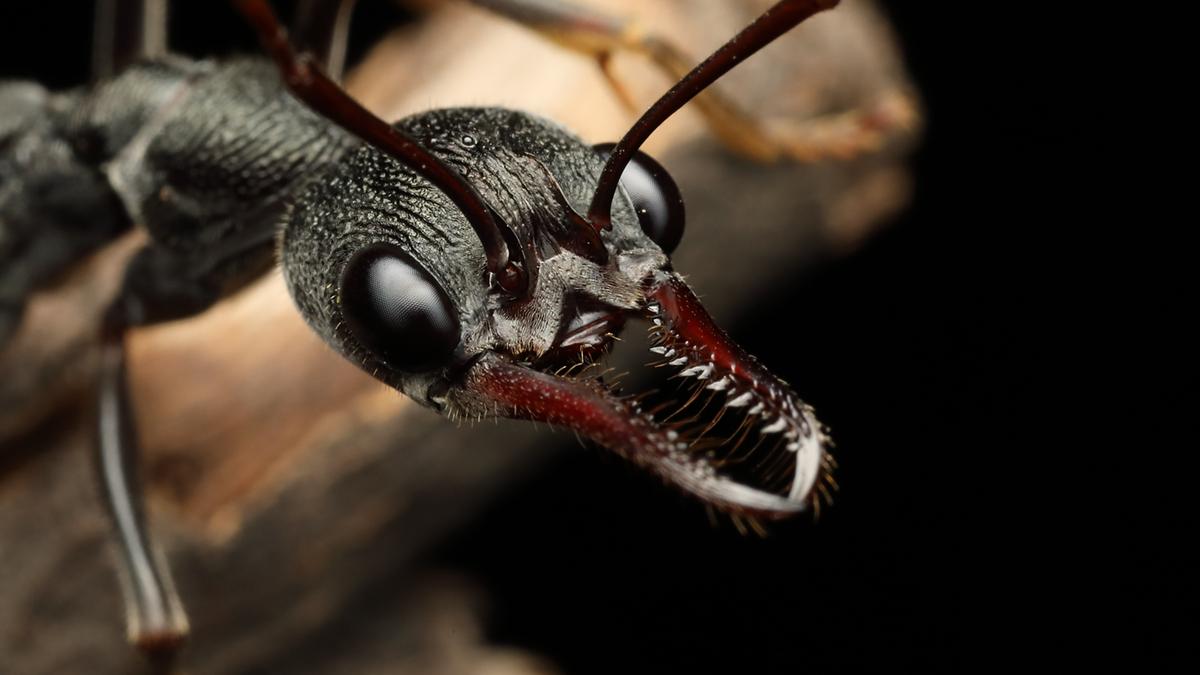
Only the second animal to find its way by polarised moonlight found Premium
The Hindu
Nocturnal bull ants use polarised moonlight to navigate during foraging, a unique adaptation in the animal kingdom.
Many nocturnal animals, including insects like ants and bees, follow the moon’s position to find their way when they go foraging. But the moon waxes and wanes in a cycle and can be obscured by clouds or overhanging tree canopies, so the animals can’t always directly track its position.
Now, for the first time, scientists at Macquarie University, Sydney, have found that two nocturnal bull ant species (Myrmecia pyriformis and Myrmecia midas) make their way at night with the help of polarised moonlight, which, while being dimmer even than moonlight, contains unusual patterns that can point the way.
This is also only the second instance of an animal being found to use polarised moonlight to orient itself.
Seen from the ground, both sunlight and moonlight contain characteristic polarisation patterns. The way these patterns are oriented in the sky, rather than the location of the light source alone, allows animals to use it as a compass.
The study found the nocturnal bull ants were able to detect and use polarised moonlight throughout the lunar cycle for foraging, even under a crescent moon when moonlight is 80% less intense.
The polarisation patterns in moonlight are also a million-times dimmer than in sunlight. So while many animals are known to use the latter, very few use the former. The first animal found to use polarised moonlight was the dung beetle.
Scientists already knew M. pyriformis and M. midas ants used polarised sunlight to navigate, but this light fades as the sun sets. The study’s researchers were also aware most of the foraging M. midas ants returned overnight while the night-time activity of M. pyriformis ants increased on full-moon nights.













